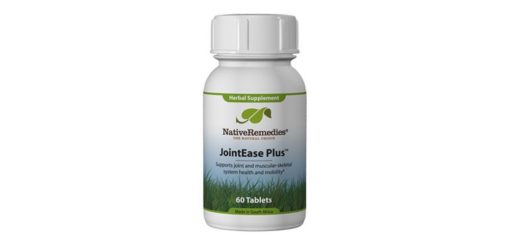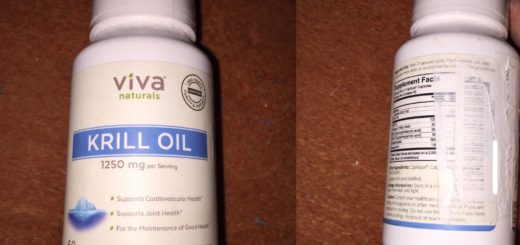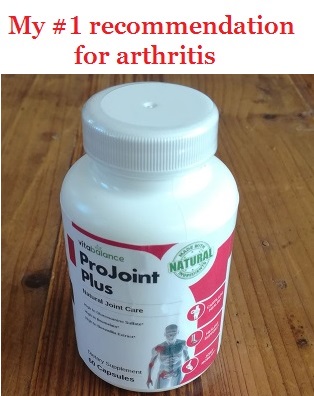Is MSM Good For Arthritis? The Real Answer

You’ve surely seen MSM in at least one joint supplement, haven’t you?
Well, methylsulfonylmethane (or MSM) is one of the most popular choices among ingredients. It’s cheap, effective and natural. Yes, that’s right – we all have MSM in our body normally, but its production decreases with age. That’s why we need additional doses at one point.
So is MSM good for arthritis? It’s obviously not bad, since so many products are using it. But does it have any real benefits for arthritis? Or is it there just to make the list longer?
I tried to find an answer by looking at each form of arthritis and how could MSM improve it.
But first…let me tell you what exactly is MSM good for.
MSM – 4 Things You Need To Know
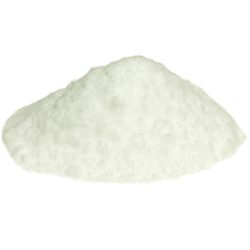 The most important thing about MSM is that it’s a natural substance. No, it’s a herb or anything. It’s simply a compound that we have in our bodies by nature. But as I said, its production decreases as you get older.
The most important thing about MSM is that it’s a natural substance. No, it’s a herb or anything. It’s simply a compound that we have in our bodies by nature. But as I said, its production decreases as you get older.
That’s why MSM is so common in supplements – it gets lower with age, so you need to take it from another source.
But why exactly is it so important? Here are its top benefits for joints in general:
– Anti-inflammatory – it reduces the production of certain inflammatory molecules.
– Improves flexibility – because it increases the production of joint fluids, MSM improves mobility on the long term.
– Increases collagen – it normalizes the formation of collagen, which seems to get lower when you grow older.
– Reduces cartilage damage – it protects the joints and decreases cartilage tear.
Now, some of these benefits aren’t as real as you might think. MSM is a great anti-inflammatory, but it helps flexibility only when it’s associated with other ingredients. Also, it improves cartilages when you take it together with glucosamine.
So if you judge after these 4 benefits, it might seem like a miraculous remedy. Well, it’s not. It works for real only when it’s associated with other substances, more powerful.
1. MSM & Rheumatoid Arthritis
 At first sight, MSM would seem perfect for RA. This condition is caused by inflammation, and MSM is first of all, an anti-inflammatory.
At first sight, MSM would seem perfect for RA. This condition is caused by inflammation, and MSM is first of all, an anti-inflammatory.
But let me surprise you a bit. There are very few RA supplements that use MSM.
Yes, if you’re using a supplement for general joint pain, it probably has MSM inside. However, if you’re using a supplement for joint inflammation, it probably doesn’t.
Most of the supplements for RA I tried are based on turmeric, Boswellia or other herbs. Out of these, only a few contain MSM (and in low doses).
See also: Best 5 Supplements For Rheumatoid Arthritis
How It Can Help:
- Keeps inflammation under control
- Prevents cartilage damage (and an eventual osteoarthritis, like the one I developed)
Downsides:
- Not very strong if it’s used alone (without glucosamine and chondroitin)
- You need to take high doses (over 1500 mg per day), and very few supplements have that
My Experience: I have RA but pure MSM supplements never helped me. In fact, MSM as an ingredient didn’t relieve my pain too much. It’s probably because I was never taking very high doses, but I was following the label’s recommendation.
So I personally don’t recommend MSM for rheumatoid arthritis. It’s not strong enough, in my opinion.
See My #1 Supplement For Rheumatoid Arthritis
2. MSM & Osteoarthritis
Most of the supplements for OA that I tried contained MSM. If you want a number, I would say around 75%.
How’s that? Well, in OA there’s little inflammation. Glucosamine and chondroitin are the usual ingredients, but they can’t help inflammation.
On the other hand, MSM is an anti-inflammatory itself, but not a very strong one. However, we’re taking about osteoarthritis, where the inflammation is quite minor. So in this case, it’s exactly what you need.
That’s the reason why most OA supplements contain MSM. The doses aren’t huge (around 200-500 mg per serving), but that’s enough to decrease that minor inflammation. Besides, MSM has some other benefits for this condition.
See also: Best 9 Supplements For Osteoarthritis
How It Can Help:
- Decreases minor inflammation (specific for OA)
- Prevents cartilage loss
- Decreases stiffness on the long term
Downsides:
- Works best only when it’s associated with glucosamine and chondroitin, so I wouldn’t recommend taking MSM alone
My Experience: MSM does help osteoarthritis, and I’ve seen that myself. However, the products I tried weren’t really based on MSM – they simply contained it as a secondary ingredient. Just like most OA supplements, they were based on gluocosamine sulfate and chondroitin.
So here’s my advise for you – don’t use supplements where MSM is the main ingredient. They won’t work tremendously. Instead, try products with glucosamine (sulfate) and chondroitin in the focus, which also contain MSM. They normally work much better than MSM alone.
See My #1 Suppleemnt For Osteoarthritis
3. MSM & Knee Pain
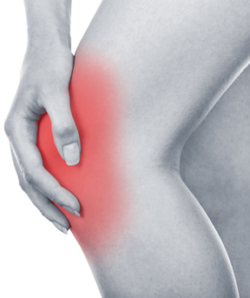 Here’s the thing: knee pain is sometimes caused by osteoarthritis. If that’s your case as well, then everything I said in the previous paragraphs is available for you.
Here’s the thing: knee pain is sometimes caused by osteoarthritis. If that’s your case as well, then everything I said in the previous paragraphs is available for you.
However, maybe your don’t have any form or arthritis. Maybe it’s just your knee hurting and that’s all.
In this case, MSM can help – but first you must find the cause of your pain. If your knees are swollen and warm, it’s probably inflammation behind. If they’re not swollen but they still hurt, it could be an a chronic pain.
Either way, MSM has several benefits for your knee pain.
See also: Best 7 Supplements For Knee Pain
How It Can Help:
- Increases your knee fluids and lubrication
- Improves flexibility and mobility
- Decreases an eventual inflammation (if it’s not a major one)
Downsides:
- Doesn’t always work, since you’re not sure what’s causing the pain
My Experience: My knee pain was caused by osteoarthritis, so I knew the exact cause. However, products based on MSM didn’t improve it considerably. It was only when I tried a mix of ingredients that my pain got better.
I’m talking about glucosamine sulfate + chondroitin + MSM + additional ingredients. That’s actually the combination I mentioned before. So that’s the kind of supplement I recommend you to try, in case of a knee pain that doesn’t go away shortly.
My Verdict – Is MSM Good For Arthritis?
Short answer: Yes, but only if you combine it with other ingredients. And there are 2 categories here:
1. You have rheumatoid arthritis or inflammation
I personally would not recommend MSM in this situation, for only 1 reason. It’s not strong enough and you need high doses for a good effect. The only solution would be to associate it with turmeric or Boswellia, but you can rarely find this combination in supplements.
2. You have osteoarthritis or chronic pain, without inflammation
In this case, MSM can help a lot, but with one condition – associate it with glucosamine sulfate and chondroitin. When you take it alone, it’s good, but it’s not strong enough to relieve your pain.
So here’s my advice for you – don’t use a supplement based on MSM alone. Instead, choose something based on glucosamine (only make sure it’s the sulfate form, not the HCl).
Make sure your supplement also contains MSM, but it shouldn’t be the #1 ingredient. Glucosamine and chondroitin are much more powerful, that’s why they should be in the focus.
Your Thoughts
Now I would like to hear from you:
- Have you tried MSM supplements before?
- What kind of product did you use – MSM alone or in combination?
- Did you feel any improvement?
- Would you continue to use MSM or you would need something better?
Let me know your answer, comments or questions in the comment section from below. I will gladly offer you any advice or recommendation.
